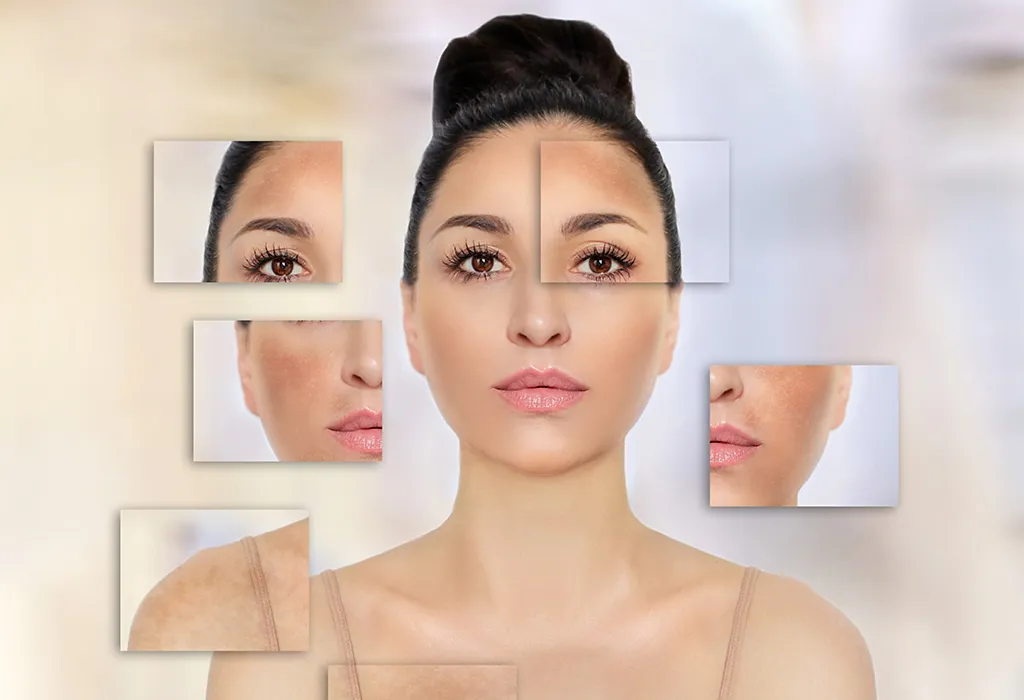Health
Understanding the Causes of Skin Pigmentation

The world of skin pigmentation is both fascinating and intricate. While skin color is a defining feature of humans, not many people know what causes these variations. This article aims to shed light on the different reasons behind skin pigmentation, both common and rare.
The Science Behind Skin Pigmentation
Melanin, the primary pigment responsible for our skin, hair, and eye color, is the centerpiece in the conversation about skin coloration. Produced by specialized cells called melanocytes, melanin acts as a shield, providing some protection against the harmful effects of ultraviolet rays. Different skin tones result from varying amounts and types of melanin being produced.
Genetic and Hereditary Factors
Our genetic code, passed down through generations, plays a pivotal role in determining our skin color. It’s why family members often have similar skin tones. However, genes also account for unique features like freckles, birthmarks, and even susceptibility to certain pigmentation disorders.
Sun Exposure and Ultraviolet (UV) Radiation
While the sun is essential for vitamin D production and mood regulation, its UV rays can have both immediate and long-term effects on our skin. Extended exposure can heighten melanin production, leading to a tanned appearance. Yet, without proper protection, it can also cause sunburns, premature aging, and increase the risk of skin cancers.
Hormonal Influences
Hormones play a more significant role in our skin’s appearance than one might assume. Conditions like Melasma, which results in dark patches on the face, often appear due to hormonal surges during pregnancy, menstruation, or while taking birth control. These shifts in hormones stimulate an increase in melanin production.
Skin Injuries and Inflammation
Post-inflammatory hyperpigmentation (PIH) appears after an injury or inflammation has healed on the skin. Whether it’s from a scraped knee, acne scars, burns, or other traumas, these areas can become darker due to the skin’s response to the injury.
Medical Conditions and Diseases
Several medical conditions directly impact skin pigmentation. Vitiligo, for instance, leads to a loss of pigment, creating light patches on the skin. Albinism, a genetic condition, results in little to no melanin production. These conditions, among others, showcase the intricate connection between health and skin appearance.
Medications and Chemical Exposures
Some medications, when taken regularly, can alter skin pigmentation. Antibiotics, anti-seizure drugs, and even some chemotherapy medications can cause these changes. Topical treatments, especially those containing strong ingredients, can also lead to pigment variations if used without guidance.
Moreover, in the vast world of skincare, organic brands like Dr. Renaud have carved a niche for themselves by offering products tailored for specific skin concerns. Consulting with a dermatologist or skincare expert can further guide you in making informed choices, ensuring your skin remains healthy and vibrant.
Aging Process
Time inevitably affects our skin. With age, the distribution of melanin becomes less consistent, leading to the appearance of age spots or liver spots. While mostly harmless, these spots are a testament to the many years our skin has shielded us from various environmental factors.
Other Causes and Miscellaneous Factors
Diet and nutrition can subtly influence skin pigmentation. For instance, a deficiency in vitamin B12 can result in skin appearing paler or slightly jaundiced. Some cosmetic procedures, if not done correctly, can also inadvertently lead to pigmentation changes, emphasizing the importance of choosing certified professionals for any skin treatments.
Conclusion on Skin Pigmentation
Our skin is a living canvas, reflecting both our genetics and the various experiences and challenges it encounters throughout our lives. By understanding the causes behind skin pigmentation, we are better equipped to care for and appreciate its uniqueness.
Have you ever experienced unexpected pigmentation changes? Share your story or ask your burning questions in the comments. For personalized advice, remember to consult with a trusted dermatologist.
































